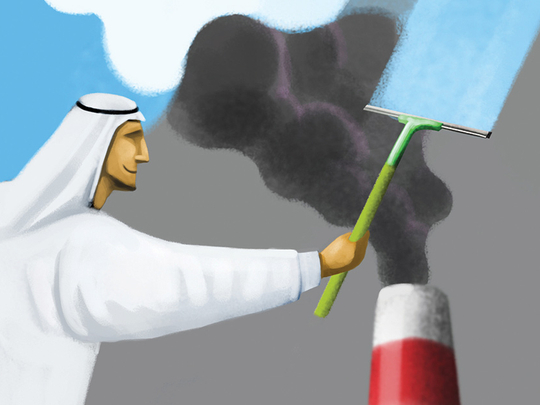
This year’s Abu Dhabi Sustainability Week is ongoing. In late 2015, representatives from more than 180 countries in the world gathered in Paris and agreed on greenhouse gas (GHG) emission reduction targets for keeping global warming below 2°C. The so-called Paris Agreement to address climate change is more epoch-making than the 1997 Kyoto agreement between 37 countries.
However, the total of the national GHG emission reduction targets indicates that GHG emissions will continue increasing at a similar pace as in the past, instead of decreasing. Every five years, the parties to the agreement will review whether their targets are adequate, whether there is more room for them to reduce GHG emissions, and what technical and financial assistance is needed to do so. A mechanism for facilitating the review will be important.
So what should we do? The answer can be found at this month’s Abu Dhabi Sustainability Week.
Gathering in Abu Dhabi are government officials, business leaders, scholars, researchers and others.
They are interested in energy conservation, renewable energy, storage cells, CCS (carbon capture and storage), CCU (carbon capture and use), desalination and other measures, as well as in information technology to connect these measures in an optimum manner. This is a stimulating, attractive gathering filled with speeches, panel discussions, product and system exhibitions, and business opportunities.
Significance
Although events of this kind take place in many other countries, the Abu Dhabi Sustainability Week is significant for three reasons.
First, the event takes place in the United Arab Emirates, rich with oil and gas resources. It tells us that it is wrong to believe that countries rich in fossil fuels are less interested in climate change.
At the same time, the event allows us to generally grasp the sophisticated technologies that these countries are adopting.
Next, the Zayed Future Energy Prize, named after the founding father of the UAE, is awarded to big companies, small and medium-sized enterprises, high schools, non-profit organisations and individuals who have made great contributions to renewable energy and sustainable growth. It is particularly impressive to see the awards going to high schools to fund projects in Asia and Africa, as well as in western countries. Their shining eyes indicate that our future will be bright.
Finally, this event coincides with the International Water Summit, a conference and exhibition on sustainable water use that is significant due to the venue of Abu Dhabi, which is located in the arid Arabian Gulf. There is also the WiSER initiative conference aimed at promoting women’s participation in renewables and sustainability; and the EcoWASTE exhibition for participants to share waste management and recycling measures. The Abu Dhabi Sustainability Week is a comprehensive event based on global perspectives.
The International Renewable Energy Agency (Irena), is located in Abu Dhabi, which has become a centre for sustainable growth. At the Abu Dhabi Sustainability Week, let’s acquire the wisdom and vitality required for the further development of mankind.
Masakazu Toyoda is the CEO and Chairman of the Institute of Energy Economics, Japan.









